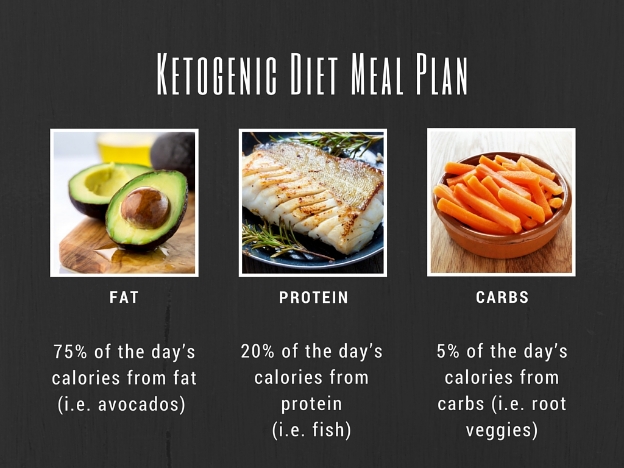In recent years, a notable shift has occurred an impressive transformation for a plant-based lifestyle as more more people adopt vegetarian and vegan diets. This increasing movement shows a heightened awareness of sustainable living, health benefits, and ethical issues surrounding food choices. As individuals pursue healthier lifestyles and ways to reduce their environmental impact, comprehending the different diet types is increasingly essential. Covering diets from high-protein to plant-based and everything else in between, many choices exist to those looking to improve their dietary habits.
This piece is designed as a beginner's guide to the most common types of diets, giving an overview of their benefits, drawbacks, and suitability for different lifestyles. We will explore the key differences between vegan diets and plant-based diets, look into current diet fads like the Keto and Mediterranean diets, and analyze specific diets such as diabetic and gluten-free diets. Regardless of whether you prioritize weight loss, your fitness, or eating ethically, this detailed guide is intended to guide you find your way through the varied landscape of dietary options and choose the diet that best fits your personal goals and ethical values.
Trending Dietary Styles Unveiled
The realm of dietary choices has become increasingly diverse, with multiple plans catering to different health goals and ways of living. Among the most popular is the Mediterranean diet, which focuses on whole foods such as fruits, vegetables, whole grains, and healthy fats like olive oil. This diet is broadly celebrated by health professionals for its benefits in promoting heart health and longevity. The emphasis on plant-based foods combined with moderate fish and dairy consumption creates it a well-rounded option for many looking to improve their overall health.
Another common option is the ketogenic diet, which advocates for a high-fat, low-carbohydrate intake. The concept is to change the body's metabolism into ketosis, where it utilizes fat for energy instead of carbohydrates. While certain people have found benefits in weight loss and increased energy, this diet can be difficult to maintain and may not be suitable for all individuals. Recognizing the potential risks and benefits is essential for those thinking about this approach.
For people looking for more flexibility, the flexitarian diet offers a balanced approach by primarily focusing on plant-based foods while permitting for intermittent meat and animal product consumption. This diet hits the ideal balance for many, providing the health benefits associated with vegetarian eating while not fully eliminating meat. It encourages sustainable eating habits and aligns with ethical considerations without strict limitations.
Nutrition Benefits and Drawbacks

Selecting a nutrition plan often requires weighing the potential advantages in comparison to the disadvantages. For many individuals, plant-based nutrition plans, such as vegan diets and vegetarianism, offer numerous health advantages. They are typically high in fiber, vitamins, and antioxidant compounds, which can lead to better digestion, a more robust immune system, and lower risk of chronic illnesses like heart disease and diabetes. Additionally, following a nutritional plan loaded in fruits, fresh vegetables, and whole grains can contribute to effective weight management and increased energy levels.
Nonetheless, plant-based nutrition plans can also present obstacles. Moving to a vegan or meat-free lifestyle may necessitate careful preparation to ensure that all dietary needs are met, particularly concerning protein, iron intake, calcium, and vitamin B12. https://articlescad.com/detoxification-diets-truth-or-fiction-45144.html may experience challenges in finding sufficient sources of these nutrients without the inclusion of meat. Weight loss can lead to sensations of lack or excessive focus on food choices, potentially impact long-term adherence to the diet.
Furthermore, community contexts can pose further challenges for those on plant-based diets, as dining out or going to gatherings often involves few options. The view of plant-based eating as restrictive or unconventional may lead to situations where individuals feel alienated from their social circle and loved ones. It is essential to establish a balance that encourages healthy eating habits while also permitting for pleasure and community engagement, ensuring the diet supports both well-being and overall well-being.
Determining the Most Suitable Diet for You
Opting for the suitable diet involves comprehending your personal goals, lifestyle, and health needs. Whether you target for weight loss, muscle building, or merely boosting your general health, it's essential to select a plan that fits those goals. Take some time to consider what drives you and what obstacles you may face along the way. This self-awareness can lead you towards a diet that seems doable in the long run.
When evaluating different dietary choices, keep in mind factors such as your daily routine, food preferences, and any dietary restrictions you may have. For instance, those with lactose intolerance might find a vegan diet more suitable. Conversely, individuals who thrive on high-protein meals may favor a diet focused on animal proteins or the Mediterranean diet, which balances protein with healthy fats and carbs. It's important to select a diet that works into your everyday life to increase your chances of adhering to it.
Finally, remembering the value of adaptability can enhance your journey. Many diets, like the semi-vegetarian approach, permit some treats, while still prioritizing plant-based foods. This balance can ease the pressure of strict dietary rules and promote sustained adherence. Be open to trying new things and adjusting your choices as needed, ensuring that your selected diet meets your health goals and lifestyle preferences.
